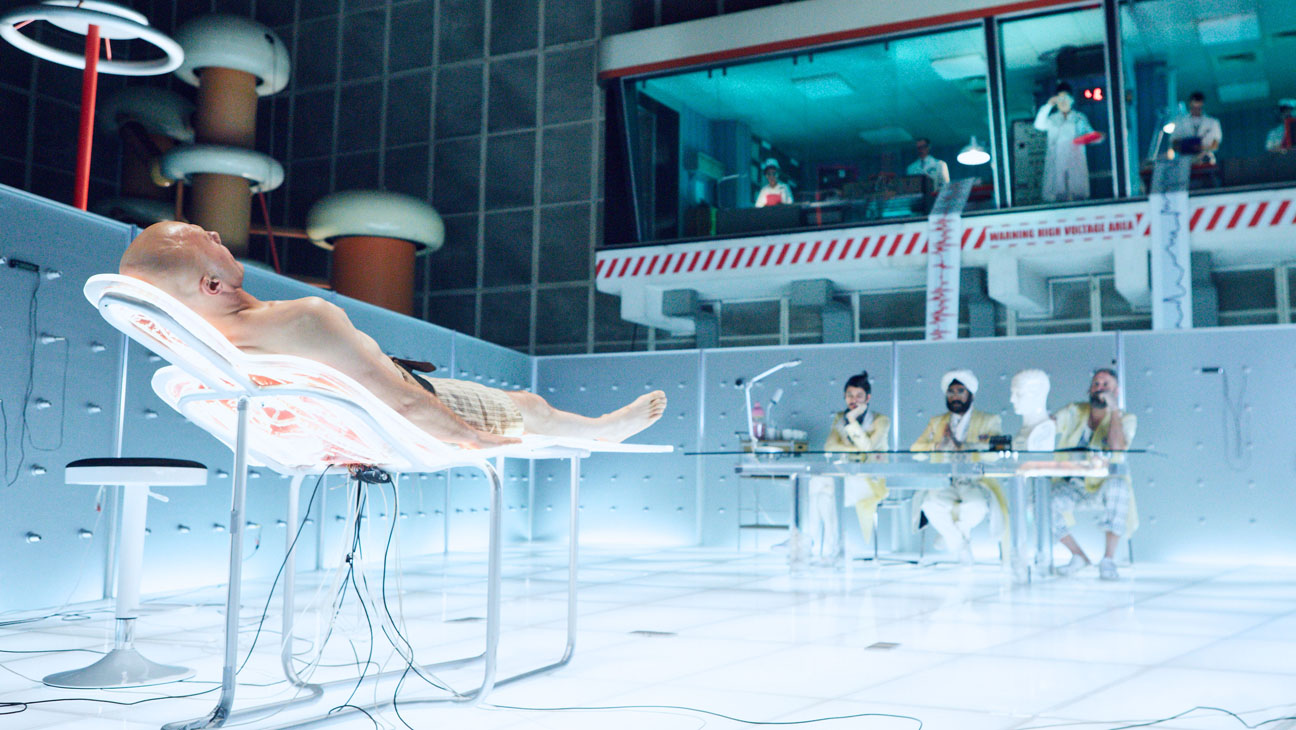Since creating the dystopian classic Brazil in 1985, Terry Gilliam has directed just eight more features—a disappointing total for such a feverish imagination. And those films have frequently been half-cocked or messed up, as though damaged in transit. His newest is signature Gilliam: visually exuberant and robustly cynical, it shows the director still circling the big ideas he’s been nursing since his Monty Python days.
Pat Rushin’s futuristic script is draped around the defeated shoulders of a worker drone named Qohen Leth (Christoph Waltz). Convinced he is dying, he pesters his manager (David Thewlis) to be allowed to work—Qohen inputs “entities” into a fearsomely complicated database—at home. Most of the movie takes place in two spectacular sets: the garish corporate workplace and Qohen’s cavernous home, an abandoned, partly burned-out church. For reasons that remain murky, the increasingly jittery hero is visited by a teen tech genius (Lucas Hedges) and a saucy young woman (Melanie Thierry); also mixed into the chaos are Qohen’s daft psychotherapist (Tilda Swinton, still in Snowpiercer mode) and a genial white-haired company boss known only as Management (Gilliam’s Brothers Grimm star Matt Damon). If the film has anything like a narrative rope to cling to, it’s that Qohen is trying to solve an elusive theorem that will prove the meaning of life, or maybe the absence of the meaning of life.
The Zero Theorem kicks off nicely. Gilliam’s ability to manufacture worlds is bracing at first, and Waltz is an inspired choice for the lead. His head is shaved—highlighting the fact that he has a very sci-fi skull—and he adopts a crabbed walk that makes him look like a cut-out from one of Gilliam’s animations. The ending, too, takes us into favored Gilliam territory: the tantalizing seduction of embracing fantasy as an escape from misery. That Gilliam already has his mind made up against that seduction is one of the things that dampen this movie’s life. Its middle hour is a wheel-spinning jumble of outrageousness and noise, and mostly pretty tiresome. On the other hand, if you have a vast appetite for watching wheels spin, nobody does it quite as floridly as Terry Gilliam. Runs Fri., Oct. 10–Thurs., Oct. 16 at Grand Illusion. Not rated. 106 minutes.
film@seattleweekly.com







